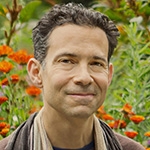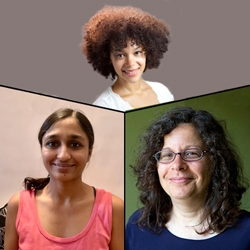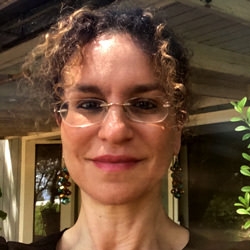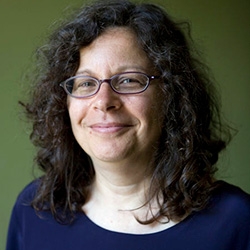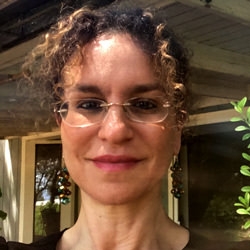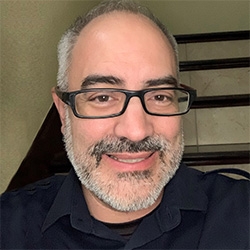
Search Results: society
-
What is it that we are taught we can’t have, and what is it that we are encouraged to pursue instead? This guide could help you see through what's hidden behind the curtain of our societal conditioning.
-
How do we address historical and present challenges regarding the invisibility of privilege and power? What can we do, especially if we are people with privilege, to transform these conditions? However challenging these kinds of situations are, and whatever our position, we can move towards more inclusivity by learning and doing significant inner and outer work.
-
Unless we change our collective ways on the planet, we will one day exceed the earth’s carrying capacity. We can only address the planet's very real limits of physical resources at the level of social organization. To operate empathically is to adjust our collective social order and patterns so that resources are more widely available and everyone's needs are met no matter what their output, income, power, circumstances, etc. Can we envision a future where the system is infused with this level of empathy, before it's too late?
-
Given all that we are facing today as a society and a species, amongst some of the things we need is a well nourished heart. To nourish our hearts we need to discern where to wisely put our attention. Here are three practices to reclaim your attention, and replenish your reserves, so that you have the inner resources to do the work that is calling you. They are: train the mind, nourish the heart, and stay connected to purpose.
-
We can see throughout many examples in history that when we look for "who" is at fault, and thereby seek social change through shaming that person (or that group), it tends to lead to disastrous long term consequences. Even if it works in the short term. Instead, if we want to end cycles of violence we can seek to understand systemic causes and context of individuals' behaviour. And from there, look for solutions that stem from this understanding.
-
While so many of us know how close we are to the edge of global catastrophe and want change, what makes the existing global system continue to function with our ongoing participation? Read on for more on the challenges and path towards learning to steward life and all the resources of this one planet for the benefit of all.
-
Our world is facing stressful times. And the more stress you experience, the less resourced you can become. But consider that you're not messed up, but rather, the challenges you bear is a response to manufactured environments and culture that are more hostile than they are kind towards our human souls and bodies. And so, let’s be clear. Let’s be discerning. Let’s be compassionate. Let’s pay attention.
-
This pandemic is an immense opportunity, and a dire catastrophe in the making. It’s a crisis within many planetary crises — during which, our habits as individuals, and as a collective, are challenged because they don’t sustain us. Now we are pushed to respond freshly and join forces in ways that seemed impossible before.
-
As we head towards impending collapse the relative ease, comfort and freedom of the global north will be harder to maintain. Because of growing anxiety including from people with systemic power, we can anticipate increasing attempts at authoritarian control over the population. We can see what's occurring now as dry run practice for what's coming soon. What may help us: finding choice, knowing when to choose death, and walking towards community and life.
-
Our everyday personal experiences of diminishment, and the destruction of our planet has a through-line. Societal traumas lead to us shutting down to avoid pain, and this limits us. The avoidance shifts our brains so we don’t see other beings, species and our planet as wondrous, precious and irreplaceable. Thus, we meet others with diminishment, oblivion, or abuse; trauma keeps passing on. This leads to being blind and mute, and to othering based on social location, and to destruction of our planet.
-
When we have privilege, we can have access to resources resulting from legal or social norms related to membership in a group -- independent of any (in)action, awareness of the disparity, the potential benefits to us, or the costs to others. Unhelpful ways of engaging with privilege are: denial/invisibility, guilt/shame, defensiveness, and entitlement. Helpful ways of engaging are: owning privilege, learning about privilege, opening to feedback, and stewarding privilege for benefit of all. To be helpful we need to engage with necessary (rather than unnecessary) discomfort.
-
Most people want to punish perpetrators of sexual violence. Unfortunately, punishment doesn’t lead to lasting widespread change. Rather, we can identify root causes and conditions that sustain violence. That means shifting from individual to systemic lenses, and from punitive to restorative responses. It means collective learning about how such acts are nurtured and persist. This can reduce the chance of it happening again.
-
The human species is trained and habituated towards separation. This model encourages humans to either give up on their needs or fight for their needs. In this short video, Miki shares how increasing capacity shifts habits of separation and supports holding of all needs. Through intensive lifelong practices we learn to increase our capacity to receive and to increase our capacity to be generous supports our overall capacity to hold all needs.
-
In a world facing crisis and deep divides, there's a need for empathic community and connection. Here we reflect upon the importance of empathy, consciousness, and building a sense of community to address complex challenges and promote well-being. Slowing down, engaging in empathic conversations, and committing to a practice of empathy and mindfulness could be essential for personal and societal transformation.
-
- Learn concrete tools for engaging with others as you embrace individual and collective liberation
- Find your own source of choice even in the face of challenges
- Release the constriction of scarcity
- Find an empowered option to respond to what is happening in our world
- Open the door to the possibility of thriving rather than merely surviving
-
- Explore the complexities of how we can care for all of life using NVC
- See the role that power plays in relation to observations, feelings, needs, and requests
- Learn how to support people from many backgrounds in being able to apply NVC
- Discern how to engage with these vast topics as we learn and share NVC
-
Join Aya Caspi, a Certified NVC Trainer, as she delves into the difficult topic of parenting, childhood trauma, and social status. She discusses the generational impact of being labeled by society as "less than" or subservient. The wounds of childhood trauma can be healed so they no longer are a means of control by a dominant culture.
-
How can we mobilize this insight in support of our own and others' healing? These recordings will shed light on how the social context into which we are born affects our experience, and what we can do about it at the individual level within the paradigm of nonviolence.
-
Aya Caspi, a Certified NVC Trainer discusses how the "story" we tell ourselves about human nature impacts our childhood and the roles we are taught to play in society.
-
Often, people don't help others when others are in danger, whether it is a parent who is abusing a child, a man who is battering his wife, someone sexually harassing another, a bully making fun of someone, or a person who is abusing a pet. However, intervening can save lives. And bring enrichment, peace, safety, care, and justice to the world.


